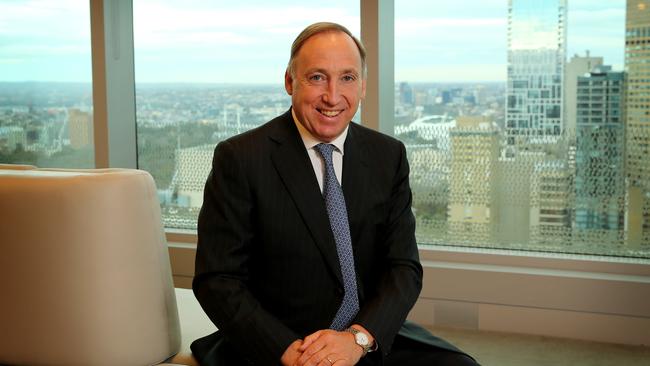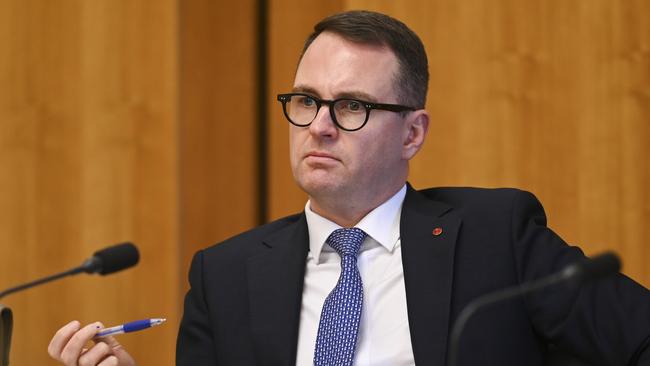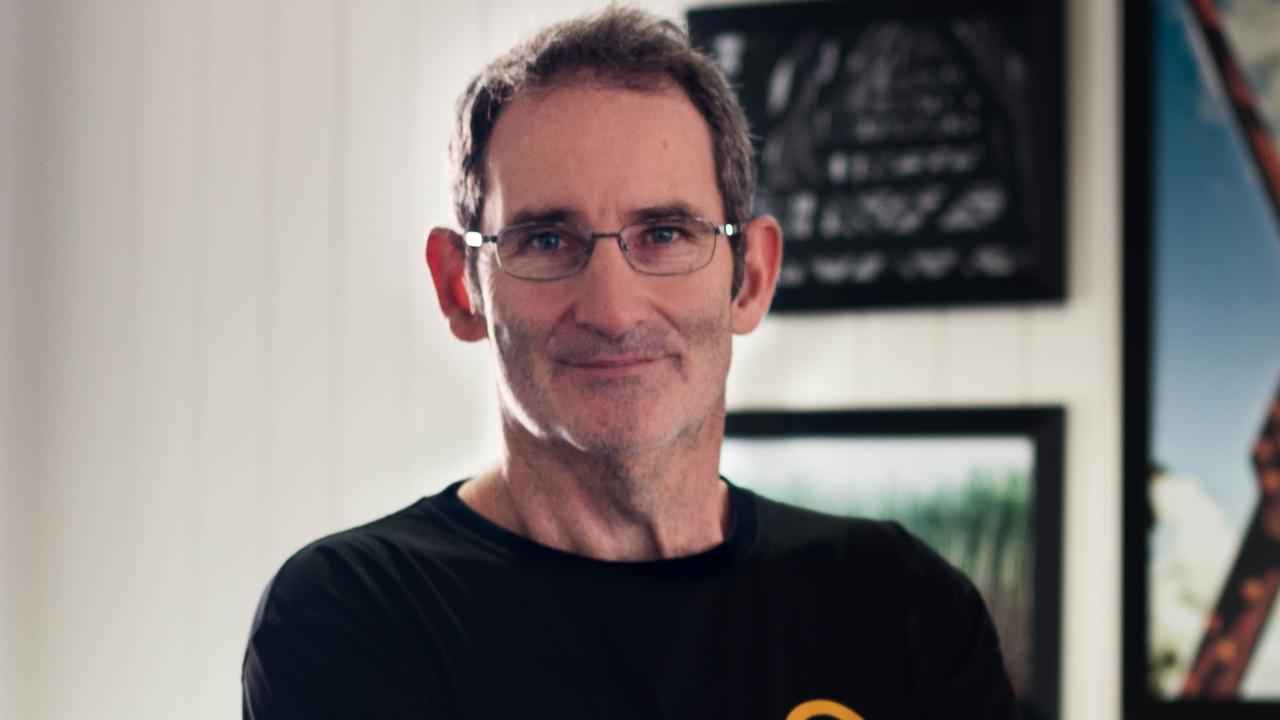Why the new inquiry into super funds is sorely needed
A wide-ranging Senate inquiry should be a first step towards the tighter regulation of big super funds which have been dictating to small investors.

Business
Don't miss out on the headlines from Business. Followed categories will be added to My News.
Big Super is finally to come under government scrutiny with a Senate inquiry into the retirement system announced this week. And it’s about time.
You might think Senate inquiries are two a penny, and they are. But the unrestrained power of “big super” – especially industry funds – is now a burning issue and there are pressing questions on everything from how they treat their own members to how their role as very big fish in the relatively small pond of the ASX creates problems.
And you might be of the opinion that a parliamentary inquiry won’t make a difference.
But it was a parliamentary inquiry on franked dividends led by Tim Wilson which created one of the issues that lost a federal election for the then Bill Shorten-led ALP.
To be clear, the industry funds in general have been impressive performers. Financially, they have a very strong track record and they are a good option for many investors, especially those who don’t engage with their own retirement needs – or those at the other end of the spectrum who could run their own portfolios, but don’t wish to do so.
Unfortunately though, success brings hubris and the big funds are now showing some of the attitude we saw from the “big four banks” at the time of the Hayne royal commission. Worse still, there is emerging evidence they are not effectively regulated – or just as bad – they regard the regulators as a neighbourhood nuisance while they set their sights on bigger targets.
You only have to look at some of the remarkable goings on around how Australia’s biggest super fund, AustralianSuper, has been trying to get its way in the attempted takeover of Origin Energy by the Brookfield EIG consortium to see how things are getting out of hand.
If this takeover bid fails (there is another vote on Monday), then the Origin Energy stock is likely to tumble.

That may not make a big difference to AustralianSuper but it will make a big difference to some smaller shareholders.
You might have guessed that, but no way would you guess the next twist. If you were one of the three million investors inside AustralianSuper you might be one of those who use their tailored menu of shares, known as the “members direct” product.
This is where, in theory, you can act as an independent investor choosing your own shares from the ASX 300.
If you decided that Origin Energy was actually a buy right now, you would not be allowed to purchase it because, guess what? AustralianSuper does not want that.
Hard to believe, but there is a rule inside the fund that says it can block its own investors from buying or selling any share if the fund has better ideas.
In the case of Origin Energy, AusSuper has blocked the buying of Origin Energy stock because it is worried it will accidentally breach the takeover law.
This is almost comical. the fund is telling small shareholders they cannot buy Origin Energy because if they do, it might accidentally trigger the “takeover threshold” and the fund would have to reluctantly make an $11bn bid. This is how barmy the collective nature of super funds can become.
But the message is this: The fund comes first and the individual investors comes second. Anyone who thinks being inside a big super fund with a tailored “pick and mix” option is as useful as having a self-managed super fund, is dreaming.
Plenty to inquire about
The new superannuation inquiry is to be chaired by Andrew Bragg – a Liberal operating inside a Labor government. So politically he will not have the wind behind him as Wilson had during a Coalition government.
But having said, that the terms of reference of this inquiry, which is due to report by June next year, are so wide that it should be able to examine anything it likes.
The terms include “the retirement income system, including but not limited to the aged pension, financial advice, home ownership and downsizing, and insurance”.
The outstanding issue which most likely got the inquiry approved is spiralling concern around death benefits, where the number of complaints related to super zoomed up from 5286 last year to 6,947 this year. Left to their own devices, the super funds would probably say “talk to the insurers”, but that sort of answer will not work in a Senate inquiry.
But the most revealing material may well come from the issues that have emerged this year and these are problems that the broader public are not familiar with. Indeed most people with super funds are not familiar with some of them and that might be just how the big funds like it.
Here’s four items the committee might include in their homework
1. TRANSPARENCY: Let’s get a definitive solution to the lack of transparency around unlisted assets where anyone can see what they are and how they are performing. Why not put the results on the MyGov website alongside the public performance results?
2 BONUS PAYMENTS: How about an examination of these payments and how they work? Can they be seen as inducements to stay with the fund? Are they fair to all members?
3 AFTER ORIGIN: If a fund can turn off the ability to buy or sell a stock for its members, is that in the best interests of the members?
4 FINANCIAL ADVICE: If the big funds are going to have their powers to offer financial advice widened, will that advice be independent? Would a fund ever suggest the investor leave the fund?
The big funds have become bigger than anyone ever imagined. Just to put you in the picture, AustralianSuper has more than $300bn, it is recruiting to build its London-based staff to 200 and its New York-based staff to 100.
Indeed all the top funds – ART, Aware, UniSuper et al – have become big business and it’s time for a major examination on the use of this market power.
More Coverage
Originally published as Why the new inquiry into super funds is sorely needed





